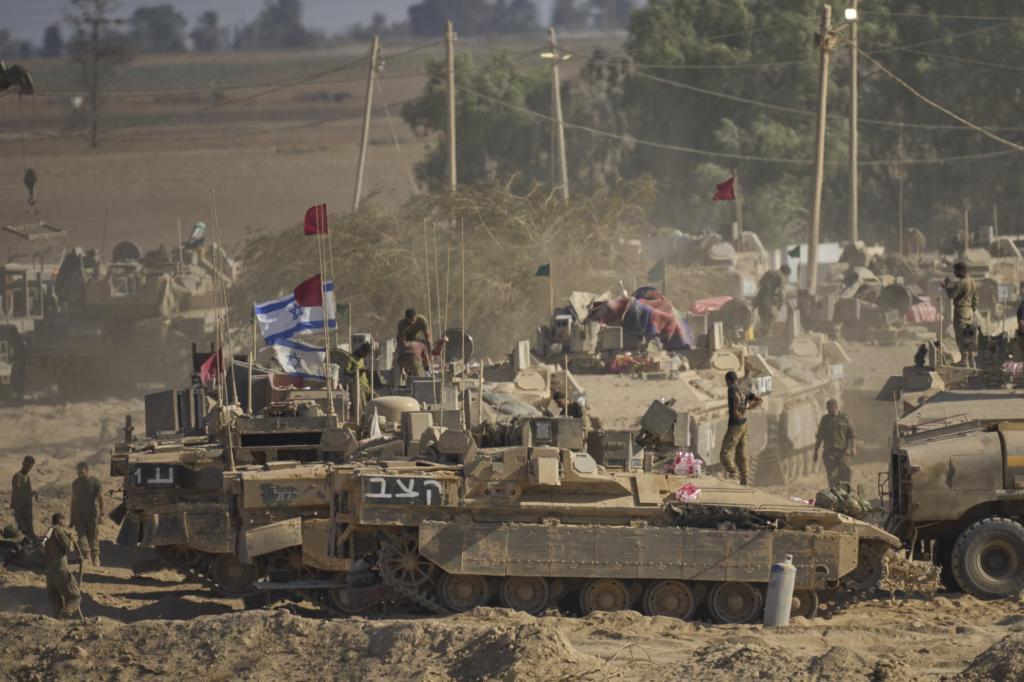Gazans to Somalia. This is one of the projects that the American consultancy firm Boston Consulting Group carried out for a group of entrepreneurs from Israel, as reported by the British newspaper Financial Times. The plan, revealed a month ago, proposed sending between 500,000 and 575,000 Gaza residents to other countries in exchange for $9,000 (¤7,730), and building in the strip a sort of Dubai in the Mediterranean - although it was named "the Riviera of Gaza" - specializing in luxury tourism, cryptocurrencies, fintech, and logistics centers. The remaining Palestinians in the enclave would live in a situation of racial segregation similar to that experienced by blacks, mulattos, and Indians during South Africa's apartheid era.
Boston Consulting Group (BCG) denied its involvement in the project, stating that it was carried out by a group of consultants without the company's consent. However, the Financial Times has now added more details by reporting that the project also included resettling some Palestinians in Egypt, Jordan, the United Arab Emirates, and, surprisingly, in two African territories (one of which is not even formally recognized as a country): Somalia and Somaliland.
Somalia has been in a state of permanent civil war for three and a half decades, being bombed by the United States at least 35 times this year alone, with its government being supported by 11,900 African Union soldiers. Somaliland is a de facto country - in fact, a democracy - but not de jure, as no nation has officially recognized it as such.
The plan was developed jointly by BCG and the Israeli-American NGO, Gaza Humanitarian Foundation, which is managing aid and food distribution points in the territory and aims to replace the United Nations in the administration and reconstruction of Gaza. The British Parliament is currently investigating this matter.
BCG's idea challenges one of the objectives of its own plan, which was to ensure that the Palestinians resettled in other countries would not want to return to their homeland. Somalia faces issues of banditry and chronic sectarian conflicts, with a significant portion of its territory controlled by the Islamic State and the Al Qaeda-affiliated group Al Shabab.
Additionally, the United States is engaged in a significant covert war in Somalia. According to the Washington news website Axios, between February 1 and June 4, the U.S. Navy bombed Somalia 32 times. In one instance in May, aircraft from the nuclear-powered aircraft carrier Harry S. Truman dropped 60 tons of bombs. The latest known airstrike against jihadists occurred last Friday.
Somaliland, on the other hand, is in a better situation at all levels compared to Somalia. However, it is a country that does not legally exist. The territory broke away from Somalia in 1991 and, although it functions as a state in practice, it lacks legal recognition since no other nation has acknowledged it.
Furthermore, the capacity of Somalia and Somaliland to host refugees is unknown, although Somalia tends to be a significant source of refugees to the rest of the world. What is clear is that for Somaliland, this would be a step towards gaining acceptance by the international community.
Somaliland has had excellent relations with the United States for decades, and the country's presidents have viewed recognition positively, especially in exchange for military bases in a strategic territory at the entrance to the Red Sea and facing Yemen.
The proposals to send Palestinians to Egypt and Jordan have been rejected by the governments of both countries, which have been resisting Washington's pressures in this regard for months. Both countries are facing severe economic challenges, and the arrival of hundreds of thousands of refugees would not only worsen the situation but also threaten their political stability, especially in Jordan, where the descendants of Palestinians who fled Israel in 1948 and 1967 already outnumber the local population.
